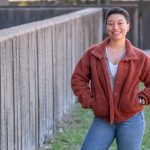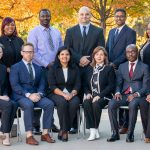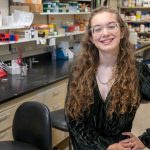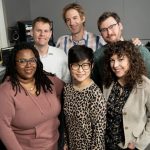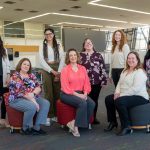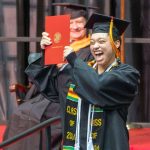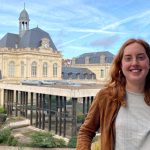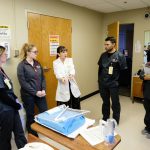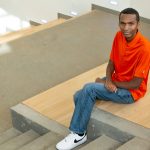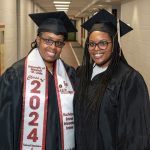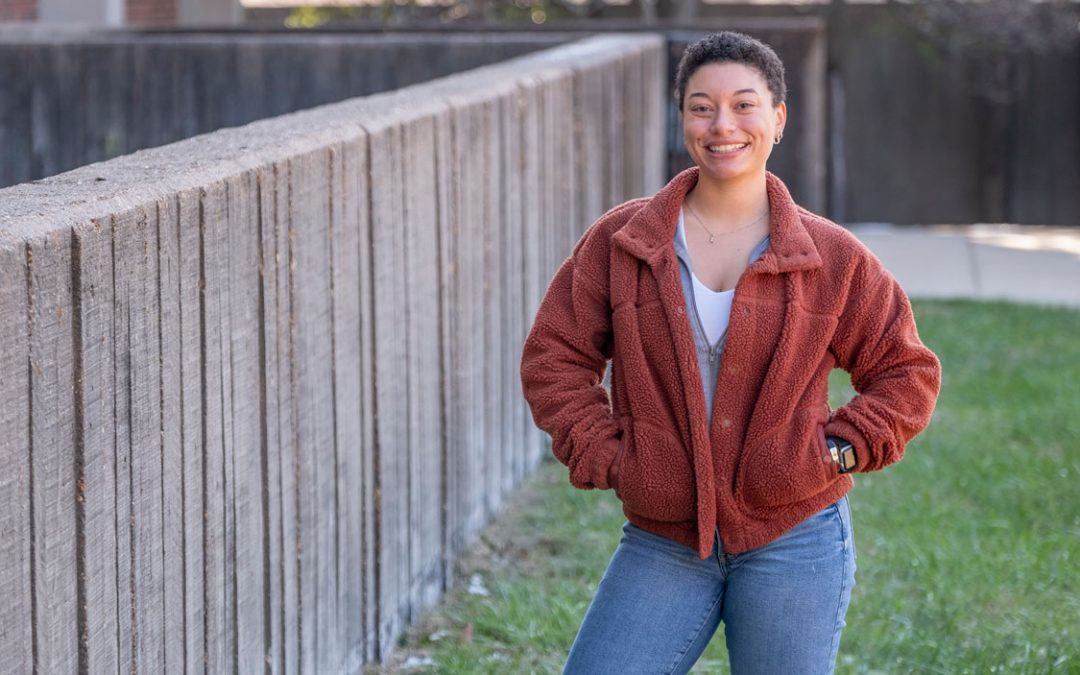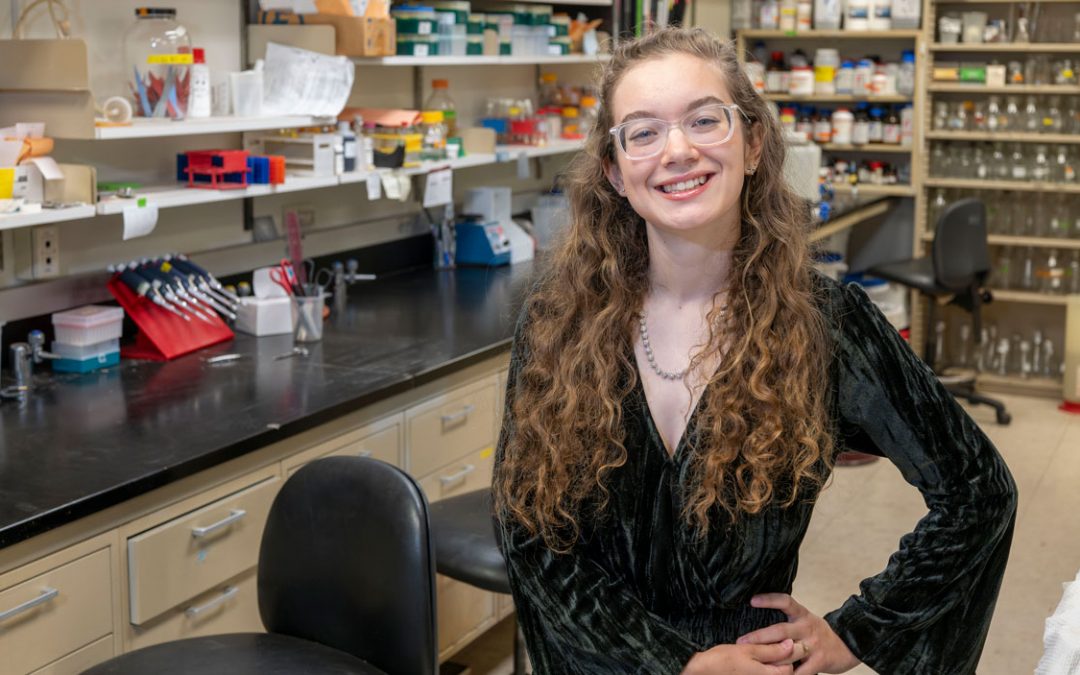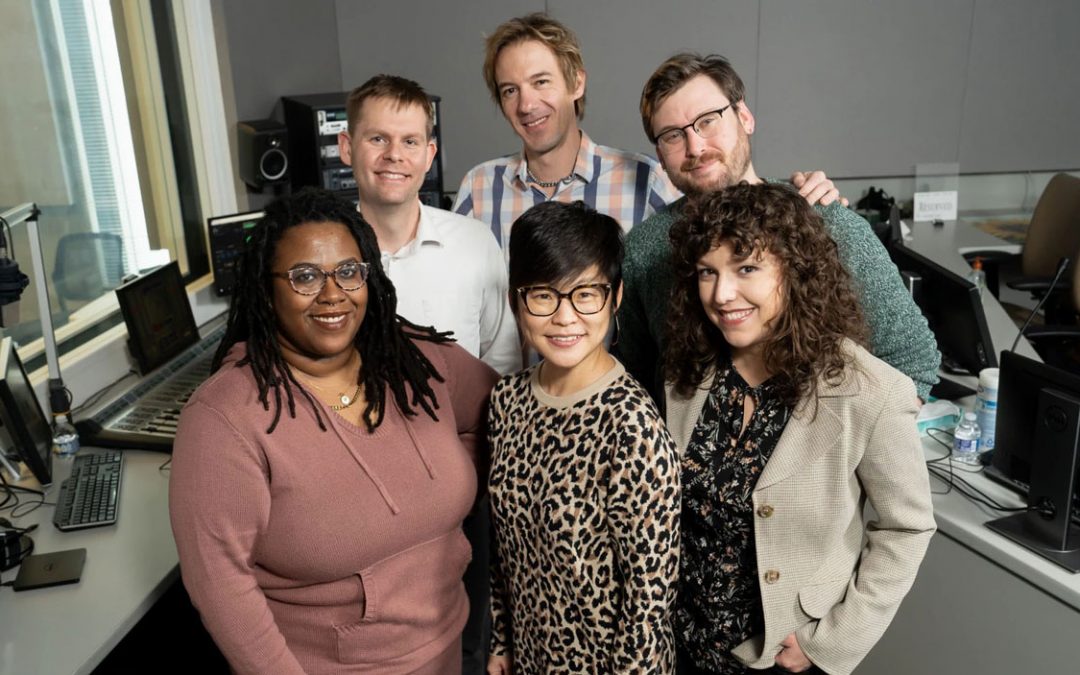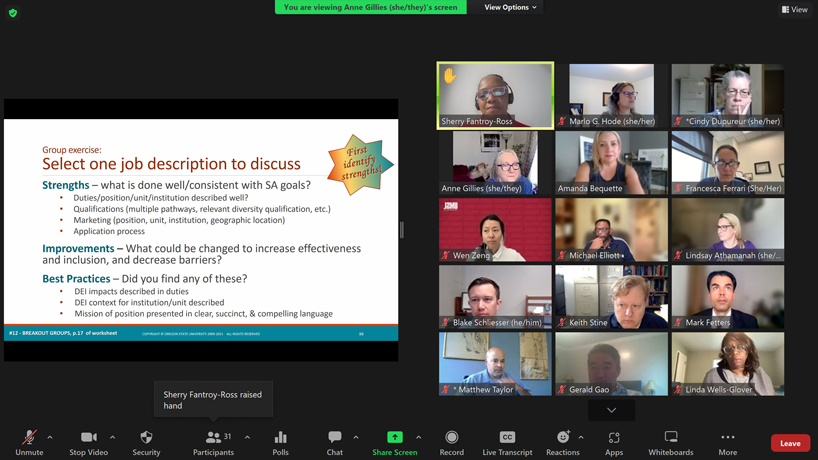
With support of a $1 million National Science Foundation ADVANCE Grant, the Office of Diversity, Equity, and Inclusion held equity advisor training this summer. The 16-hour training took place in four 4-hour sessions via Zoom from July 26 to Aug. 5. Overall, 26 staff and faculty members completed the program, which focused on best practices to promote inclusive excellence and equity in hiring. (Screenshot courtesy of Marlo Goldstein Hode)
The University of Missouri–St. Louis has been taking steps to improve gender equity in the fields of science – including the social and behavioral sciences – technology, engineering and mathematics with the support of a $1 million National Science Foundation ADVANCE grant received in 2020.
UMSL’s ADVANCE leadership team is placing a particular focus on advancing the careers of African American and Hispanic women faculty as they look to develop and enhance institutional structures, polices and processes.
However, Marlo Goldstein Hode, senior manager of strategic diversity initiatives for the UMSL Office of Diversity, Equity, and Inclusion, and Marie Mora, former associate vice chancellor for strategic initiatives and ADVANCE project director, also wanted to ensure all departments and work units are in a position to support and benefit from the goals of the program.
With the support from the ADVANCE grant, the Office of Diversity, Equity, and Inclusion held equity advisor training this summer. The 16-hour training took place in four four-hour sessions via Zoom from July 26 to Aug. 5.
“Because it is important for the goals of the ADVANCE grant that we have an entire campus that is welcoming and inclusive, Dr. Mora opened it up beyond faculty, so we also included staff, and beyond just the STEM field,” Hode said.
The sessions focused on best practices for working with committee chairs, committee members and other hiring and personnel officials to promote inclusive excellence and equity throughout hiring, promotion and advancement processes, particularly in STEM and other departments and units where women and minorities have traditionally been underrepresented.
Overall, 26 UMSL faculty and staff members were certified as equity advisors. Going forward, they will be able to provide an equity-lens regarding gender, race, ethnicity and other dimensions of identity and, upon request, will serve on committees outside of their own department or unit to provide impartial and unbiased support for inclusive excellence.
No department or committee will be mandated to use an equity advisor, but moving forward, the cohort will be an available resource on campus.
“The training was just the first step in equity advisor preparation. Through ongoing professional development, they will continue to build a toolbox of best practices and ways to support hiring committees, as well as to develop their equity lens on these processes,” Hode said.
Hode estimates that the 26 faculty and staff members will meet three to four times each semester and during the summer to continue their training. She further explained that “there was more interest than capacity for this initial training, so we hope to offer it again next year if interest in utilizing this resource continues to grow.”
“That fits right in with UMSL’s inclusive excellence compact in the strategic plan,” Mora said. “It’s not just a one-shot deal, where people have the training and then we move on to something else. It’s meant to be integrated with other initiatives that were launched out of the ADVANCE program.”
Hode and the ADVANCE grant team, which includes Associate Professor Bettina Casad, Professor Cynthia Dupureur and Associate Professor and Associate Dean for Faculty Affairs of the College of Arts and Sciences Matthew Taylor, became interested in bringing the training to UMSL after completing it themselves in 2021.
The team was updating UMSL’s ADVANCE external advisory board this past spring when a board member suggested expanding the training on campus. From there, the ADVANCE team worked with the facilitator of their training, Anne Gillies of Oregon State University’s Search Advocate Program, to tailor training sessions to UMSL.
Gillies has conducted similar trainings for about a decade, and Hode noted that they’re packed with information. To help faculty and staff members digest all the content, each session had breakout rooms where participants discussed case studies and completed activities to apply their new knowledge.
“I think it was also a great opportunity because faculty and staff do not have that many opportunities to engage so deeply with each other or faculty from different departments,” Hode said. “I think there was a great community building that went on, as well, in addition to the value of the content.”
Lynn Staley, a teaching professor in the Department of English, affiliate faculty member in the Gender Studies Program and chair of the Association of Women Faculty and Staff, has served on numerous hiring committees in the past. She was interested in the equity advisor training because she wants to find the best candidates possible who are also reflective of UMSL’s student body.
“Our student body is so wonderfully diverse, and we need to be sure our faculty and staff are similarly diverse,” she said. “Because academics are not often trained in how to hire people using the most equitable framework, I was so excited to see that we would be developing these equity advisor roles. I have been taking advantage of the programming available to faculty and staff through the Office of Diversity, Equity, and Inclusion, and trusted their staff to develop really challenging and informative training, and that is exactly what we got.”
In particular, Staley learned that hiring processes should be much more layered and multi-dimensional. She added that committees and departments should look inward to confront any biases or bad habits before looking outward for future colleagues and coworkers.
“People naturally want to surround themselves with coworkers who remind them of themselves and who make them feel comfortable,” Staley said. “We have to become more intentional about how we structure and market job ads and how we ask questions in job interviews, so that we can see beyond the qualities and personality traits that make us think someone just ‘fits.’”
Casad and Staley were both pleased that there was so much interest in the training. Casad said the new cohort will help improve diversity, equity and inclusion on campus and help the university live up to its commitment to inclusive excellence.
“Having a more objective, external member on each hiring committee that focuses on the process of hiring will reduce implicit biases inherent in the hiring process, providing us with more confidence that we are ‘walking the walk’ when it comes to DEI and not just ‘talking the talk,’” Casad said. “I’m hopeful that the long-term effects will include hiring more diverse faculty and staff, particularly women faculty of color in the STEM disciplines, so our university campus better reflects our student body and the local community.”


